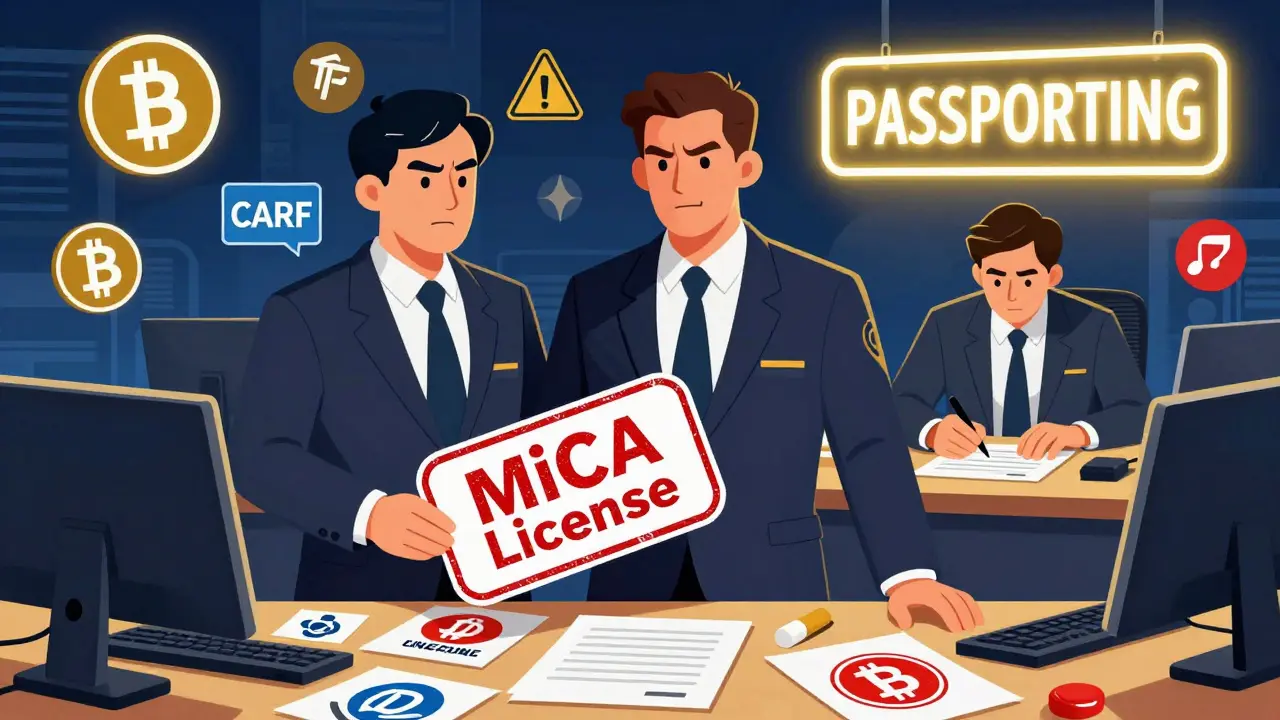CASP Licensing: What You Need to Know
When working with CASP licensing, the legal framework that lets companies offer crypto‑asset services to the public. Also known as Crypto Asset Service Provider licensing, it sets the compliance baseline for exchanges, wallets and custodians across jurisdictions. This tag pulls together the most relevant guides, from EU‑wide MiCA rules to Swiss licensing steps, so you can see how the pieces fit together.
Key Regulations and Authorities
One of the biggest drivers behind MiCA, the EU Markets in Crypto‑Assets Regulation. Markets in Crypto‑Assets Regulation created a passport system that lets a licensed provider operate across all EU member states, but it also adds strict capital, governance and consumer‑protection duties. FINMA, Switzerland’s financial regulator. Swiss Financial Market Supervisory Authority runs a parallel licensing route for firms that want to set up in Crypto Valley, offering tax incentives and a fast‑track approval process. Across the globe, the OECD CARF, the Crypto‑Asset Reporting Framework. CARF pushes automatic exchange of tax information, meaning a CASP must embed robust reporting tools to stay compliant. The Zug Crypto Hub, Switzerland’s supportive ecosystem for blockchain firms. Crypto Valley builds on FINMA’s standards with grants, reduced bureaucracy and a community focused on innovation. Even platform‑specific measures like Bybit geofencing, VPN and IP filtering to block restricted users illustrate how licensing requirements translate into real‑world tech controls.
All these entities intersect around a core goal: making sure crypto services operate safely, transparently and with the same level of oversight as traditional finance. Below you’ll find articles that break down each piece – from a step‑by‑step guide to getting your CASP passport under MiCA, to practical tips for handling CARF reporting, to how Zug’s incentives can speed up your launch. Whether you’re a start‑up eyeing a European roll‑out or an established exchange tightening its compliance, the collection gives you actionable insights you can apply right now. Dive into the posts to see the specifics, compare the licensing routes, and pick the path that matches your business plan.

